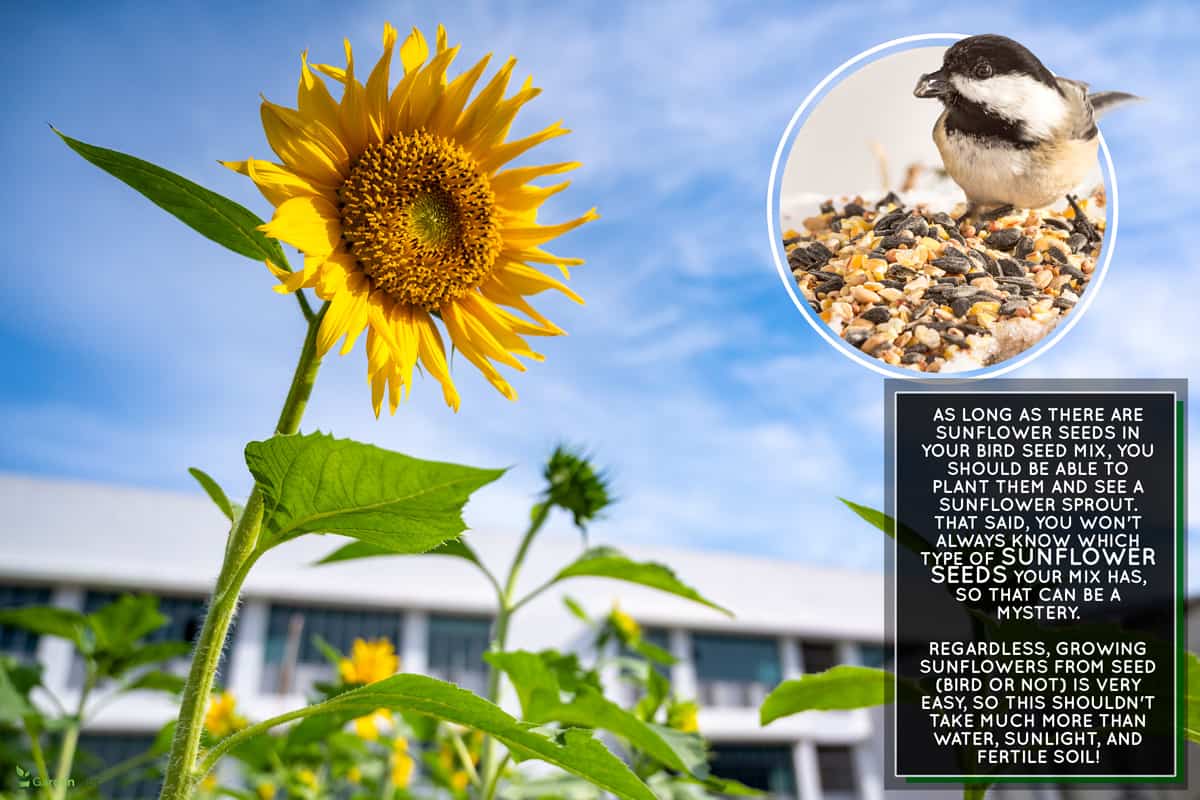Sunflowers are one of the most rewarding plants you can grow to attract birds to your garden. Not only do their bright, cheerful flowers bring joy in summer, but their nutrient-packed seeds provide essential food for wild birds through fall and winter.
Growing your own sunflowers for birds is easy, inexpensive, and fulfilling Follow this complete guide to choose the best varieties, plant at the right time, grow healthy blooms, and harvest the seeds to offer birds an abundant natural food source
Why Grow Sunflowers for Birds?
Sunflower seeds are nutritional powerhouses. They contain high levels of protein, healthy fats, fiber, vitamins, minerals, and more. This makes them ideal for providing birds with energy and nutrition when natural food sources get scarce in late fall through early spring.
- In winter, black oil sunflower seeds can make up 75% of chickadees, nuthatches, finches, and other birds’ diets.
- Offering sunflower seeds provides free, fresh food to help local bird populations thrive.
- Dried sunflower seed heads add striking architectural interest to winter gardens.
Growing your own is cheaper than buying bird seed, and you can ensure the seeds are contaminant-free.
Choosing the Best Sunflower Varieties for Birds
When selecting sunflower types to plant for birds choose varieties that have
- High seed yield
- Large, meaty seeds
- Disease resistance
- Single, upright stems for easy harvesting
Great options include:
- Black Oilseed – classic with thin black shells
- Kong – prolific seed producer
- Titan – huge seed heads up to 1 foot wide
- Snack varieties – branched plants with multiple heads
Avoid pollen-free hybrids as birds can’t access their seeds.
When and How to Plant Sunflowers
Location: Choose a site with full sun (at least 6 hours direct sun daily) and fertile, well-draining soil.
Soil preparation: Work compost into beds to enrich soil before planting.
Planting depth: Sow seeds 1/2 inch deep.
Spacing: Allow 12-24 inches between standard single-headed varieties or 18-36 inches for branched types.
Timing: Sow seeds directly in garden beds 1-2 weeks after your last spring frost date. Or start seeds indoors 4-6 weeks before your frost-free date for a head start.
Growing Care Tips
Sunflowers are quite easy once established but need some care for best results:
-
Water sunflower seedlings regularly until their root systems develop. Then water established plants only during extended dry periods.
-
Put down 3-4 inches of organic mulch around plants to retain moisture and prevent weeds.
-
Stake taller varieties to prevent toppling from winds and heavy seed heads.
-
Scout for pests like birds, squirrels, and sunflower moths and take protective measures as needed.
-
Remove faded flowers to encourage maximum seed production.
-
Allow seed heads to fully ripen and dry out on stems before harvesting.
Harvesting and Offering Seeds to Birds
Timing is crucial when harvesting sunflower seeds for birds. Wait until the backsides of the seed heads turn light brown and seeds appear plump and dry. Then, cut heads off, leaving about 1 foot of stem attached.
Hang the seed heads upside down in a warm, dry, well-ventilated area to finish drying for 1-2 weeks. Rub two dry heads over a tarp to remove the seeds. Wear gloves to avoid pokes from shells.
You can offer whole dried heads to birds by hanging them from tree branches, posts, or specialty bird feeders using strong string, wire, or twine. Platform, hopper, and tube feeders designed for sunflower seeds also work well.
Store excess seeds in an airtight, opaque container in a cool, dry area to maintain freshness. With some planning, you can easily grow sunflowers to provide food for your feathered friends all season long. Get started this year and enjoy the rewards!
Frequently Asked Questions
What is the best sunflower variety to grow for birds?
Black oil sunflower seeds are the top choice. They have thin shells that birds can easily crack open to access the high-fat, high-protein seeds. Other great options include Kong, Titan, and snack mix sunflowers.
Can you grow sunflowers from bird seed?
You can, provided the seeds are raw and not roasted or salted. However, germination rates are often poor. For best results, purchase seeds labeled and sold specifically for planting.
When should you plant sunflower seeds for birds?
For peak seed production in late summer/fall, stagger planting from early spring through mid-summer. This extends both bloom time and seed availability.
Can you just scatter sunflower seeds directly in the garden?
Absolutely. Simply sow seeds generously where you want plants to grow, then thin later. This easy method works well if pests like squirrels and birds aren’t a major problem.
Are hulled sunflower seeds good for birds?
Yes! Hulling makes seeds accessible to the widest range of bird species. Almost any bird that visits feeders will eat hulled seeds since there’s no shell to deal with.
Growing your own sunflowers is simple, inexpensive, and incredibly rewarding. Follow this guide for the best varieties, planting, growing, and harvesting tips. Soon, you’ll enjoy vibrant flowers in summer and flocks of happy birds feasting on seeds all winter long.

Sunflower Care and Growing Tips

- Common name: sunflower
- Scientific name: Helianthus annuus
- Zones: Annual
- Attracts: Birds, bees, butterflies
- Light needs: Full sun
- Size: Standard varieties grow up to 10 feet tall
- Grown for: Sunflower heads contain 1,000 to 2,000 seeds and feed birds all year
- Foliage: Stalks fade to brown in the winter
Grow
When to Plant Sunflower Seeds

Sunflowers have the best seed buffet in late summer to early fall. For longer harvest time, stagger your planting time from spring to midsummer. This way, you can attract birds and enjoy the blooms for months.
Did you know—tomatoes make great sunflower companion plants.
